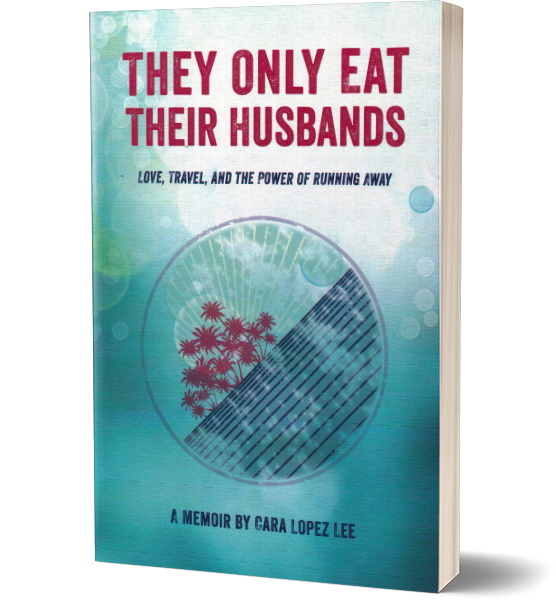This Thursday, I’m traveling to a place that should have yellow caution tape around it. According to the news, according to family and friends, according to the U.S. State Department, if I’m looking for danger: non-essential travel to Chihuahua, Mexico is the way to go, especially Ciudad Juárez. When I told my grandfather I was going to Mexico to do research for my historical novel, he shouted a bit, then insisted, “OK, next subject.” But hey, sometimes Grampa shouts when he and Dad are deciding where to grab breakfast on Sunday, so I didn’t take it personally.

According to the U.S. State Department, if I’m looking for danger: non-essential travel to Chihuahua, Mexico is the way to go, especially Ciudad Juárez.
I’ll only be in Juárez for a day and a half of my five-day round-trip from El Paso to Casas Grandes. Don’t tell my husband, but I’m more scared about the twelve hours I’ll be on a Mexican highway. I plan to hide a couple hundred bucks in my shoe, in case I need to pay off highway robbers. Remember when our parents used to say, “That’s highway robbery!” and we thought it was just an expression?
I’ll be with my Mexican friend Patricia, and I’m nearly half-Mexican, so I’ve rationalized that I won’t be targeted as a wealthy American tourist. But let’s face it, the difference between Mexican and Mexican-American is like the difference between Alabamans and New Yorkers. I’m picturing Joe Pesci and Marisa Tomei in My Cousin Vinny:
Pesci: I fit in better than you. At least I’m wearing cowboy boots.
Tomei: Oh yeah, you blend.

Pesci: I fit in better than you. At least I’m wearing cowboy boots. (My Cousin Vinny)
Our road trip will skirt the mountains along the same stretch of desert my characters travel as they flee the Mexican Revolution in Tortillas from the Chungking Café. I’d thought most of the novel would take place in South China, El Paso, and East LA. But I didn’t realize how long it would take to move fictional characters across a Mexican desert to cross the border between Juárez and El Paso in 1910. My inner-journalist insists that if I’m going to write so much about this desert, I must see it. That means passing through Juárez. I intended to wait until the drug war subsides there, but my book might be finished before then. So, when Patricia, a Denver friend from Juárez, offered to turn my research into a family outing with her mom and brother, who still live there, it seemed like kismet — or at least the safest option I’ll ever get.

I’ve visited Juárez for book research before. That’s where I found this photo of a street execution during the Mexican Revolution.
I’m going to see first-hand a few of the real places that have inspired scenes in my book: the sprawling border city of Juárez; the ancient, melting, adobe maze of Indian ruins known as Casas Grandes; the pueblo of Mata Ortiz, famous for its pottery, which helped me invent a pueblo in my book that’s famous for nothing; and the vast monotony of the Chihuahua desert. I’ve visited Juárez for book research before, but none of those other places. Normally when I go to Mexico, I hit the beach.
Of course I’m nervous. Yet that makes me feel a strange kinship with the fictional family I’ve created, who also fear the possibility of war erupting in their midst – a century ago.
My Spanish tutor visits Juárez often, and he’s going again this Thanksgiving. I take heart in believing that if it were absolutely treacherous he wouldn’t go. “Just don’t go out between 1:00 and 4:00 in the morning,” he advised. “That’s when most of the shootings happen.” Or did he say after 11:00 p.m.? Doesn’t matter – I’ll be cowering indoors the minute the streetlights come on.
There is one group of people who reacts to my trip with an enthusiastic “Wow, sounds interesting!” Fellow travelers. My friend Mark Mendiola Guerra visits Mexico often and posts a colorful blog called Mexico Unmasked. His goal is to debunk the stereotype of non-resort Mexico as a dangerous dump. Liz Grover spent a year in Afghanistan during the American war there, showing up with just a hundred bucks in her pocket. She’s writing a book, called Butterfly on the Road, about her experiences among the friendly, generous Afghanis.
To those on the fence about whether my trip is super cool or categorically stupid, I tell stories of the time I was in Nepal during elections and the newspaper declared it an unusually safe election day: only four people killed. When a friend and I climbed Tanzania’s Mount Meru, we had to hire a park ranger with a rifle, in case we ran into bandits. I’ve been drugged and robbed on a night train – no, not in the third world, but on the coast of France. As a TV reporter in Anchorage, I once conducted an interview with the Mountainview Crips inside their drug-house – at night. Yup, I’ve done what Jesse Pinkman of Breaking Bad might call some crazy shit.
Am I addicted to adrenaline? Maybe. But when it comes to life or death situations, I’m less like Luke Skywalker and more like Yoda: “Adventure. Heh. Excitement. Heh. A Jedi craves not these things.” Still, I hate stepping aside when bad guys get between me and something I have a passion to do. I yearn to tell a story of Mexican and Chinese immigrants, their mixed-race offspring, and their struggle to find a place in the world… and I want to get it right. “Take lots of pictures,” Bill, my novel instructor, told me. He also said, “Take a gun.” Don’t worry, he was kidding.

Most of the 3000-plus people killed in Juárez in 2010 were not Americans.
I think it’s worth pointing out that most of the 3000-plus people killed in Juárez in 2010 were not Americans. What’s fueling this undeclared war? American weapons and American demand for drugs. I’m grateful my loved ones worry about me. But in the long run, I’m more worried about us, all of us. Think about this: How likely do you really think it is that I’ll end up in the sights of a drug cartel? Now, how likely do you think it is that you already know someone who’s a drug addict? This real-life story is far from over.
(Patricia is not that person’s real name. It has been changed in this story for her safety.)




